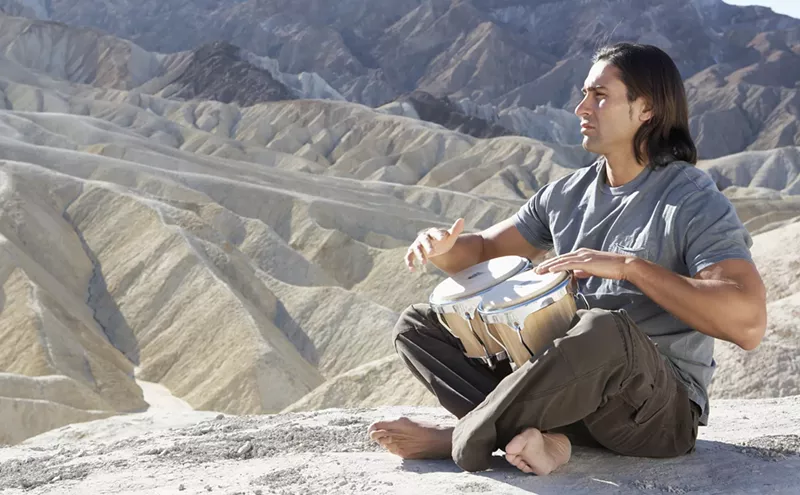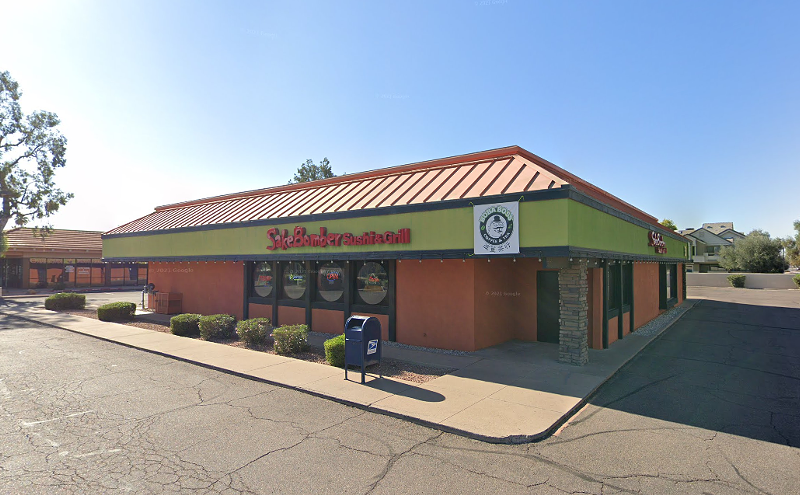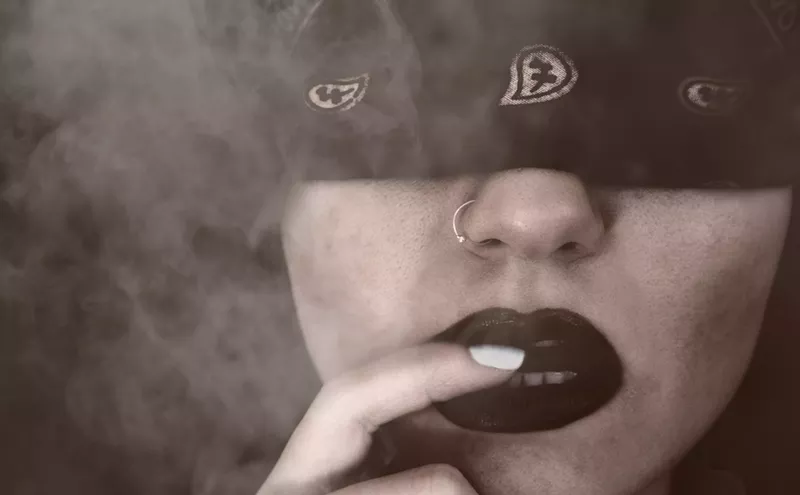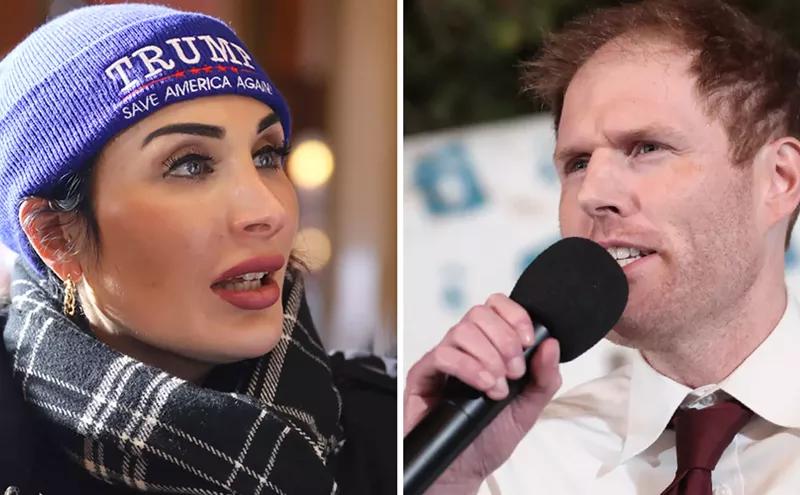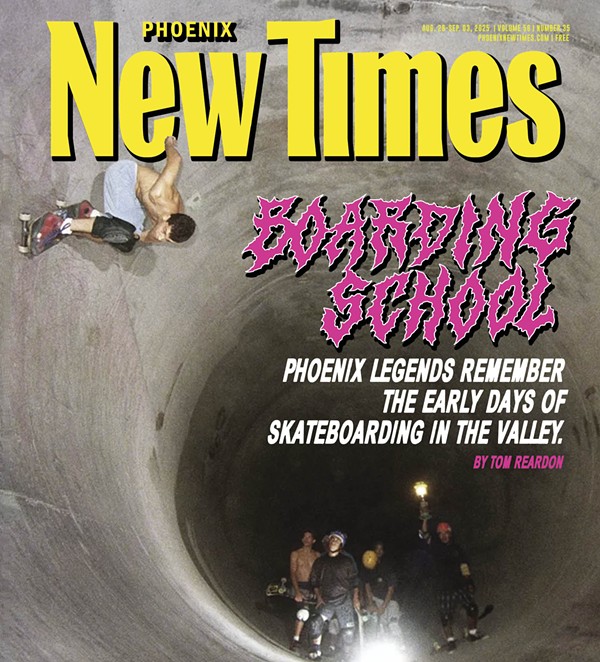We may expect more sweep and flourish from our crime thrillers now, not only because of the work of such directors as Martin Scorsese and Francis Ford Coppola, but also because of such TV cop shows as NYPD Blue and Homicide. In fact, Paul Attanasio, the screenwriter of Donnie Brasco, was one of the creators of Homicide; and one of the film's producers, Gail Mutrux, developed that series. But what Newell wants us to recognize is that the high stylishness of American crime movies and TV shows is really a con. If you want the unglorified "truth" about the crime world, you need to jettison the fancy camera moves, the Caravaggio lighting and Verdi-esque drama.
I'm not really sold on this agenda--at least not in theory. A great gangster movie by, say, Scorsese or Coppola has more resonance and emotional power--more "truth"--than anything in Donnie Brasco. Still, I don't think Newell is necessarily wrong to turn down the volume. We've probably all become a little sick of operatic crime movies. The fancy cape work is at the service of the same old bull. Even Scorsese, in long stretches of GoodFellas and practically all of Casino, has been spinning his wheels in high gear. Newell's film, by contrast, doesn't wear us out, so we're more likely to pick up on its modest virtues--the way it brings out the hair-trigger terrors of the undercover life and the deep-down friendship that gradually develops between Pacino's "Lefty" Ruggiero and Depp's Joe Pistone, known to the Mafia as Donnie Brasco during his six years undercover, starting in 1978. (His work resulted in more than 100 organized-crime convictions.)
Donnie Brasco is promoted as a "character-driven" crime movie. Despite the gunplay and the usual crime-movie high jinks, it's essentially about the connection between Lefty, a washed-out hit man and Mafia enforcer, and "Donnie," who genuinely cares for the mentor he knows he will one day betray. Just about everything in Donnie Brasco is familiar--the mob hits, the tough-talk lingo, the goombah tirades. Besides Pacino, the chief goombahs are played by Michael Madsen, Bruno Kirby and James Russo.
What keeps you watching is Pacino's performance. Of course, he's played mafiosi before; he even played a Shakespearean mafioso--Richard III. But he's up to something new in Donnie Brasco. His thug is a bit of a stumblebum; he wears his gangster accouterments--the overcoats and shades and weaponry--with a weary aplomb. Lefty reveres the underbosses and captains who have disdain for him; their power confers meaning on his dismal life. He lives in a crummy apartment in the projects in Brooklyn; his son, who lives with him, is a junkie. When Donnie comes along, passing himself off as an orphan and a jewel thief, Lefty takes up the young man's cause, schooling him in mob ways, bringing him into his home for Christmas dinner. "This is your family," he tells Donnie of the Mafia, and he means it without irony.
Pacino gets inside Lefty's dank, imploring soul. Lefty postures a lot for Donnie because he wants to show off how tough he is. It's not an act, exactly--Lefty claims 26 hits. But he's even more interested in showing Donnie that he's not a killer inside. It's just a job--nothing personal.
Donnie Brasco would have been a more complex movie if we had been exposed to the real Lefty in the book Pistone wrote about his exploits. That book, Donnie Brasco: A True Story by Agent Joseph D. Pistone, reads like a crash course in how to infiltrate the mob; it contains passages with Lefty discussing the marvelous ricochet effect of a .22-caliber bullet inside a victim's cranium. In the movie, Lefty is a killer in the same way someone else might be a dishwasher repairman, and, although there is probably a large measure of truth in this assumption, it still sentimentalizes Lefty for us. It doesn't allow for the blank space in this killer's heart. Pacino's Lefty is a sad sack with a heart of gold.
What gives the performance its power is that Pacino isn't content to leave it at that. There's a terrific sequence where Lefty has just executed a mob buddy he believes (incorrectly) to be a snitch, and Donnie calls him on it. In the car ride back from the crime scene, Donnie tries to get Lefty to say the guy's name--to humanize the victim and claim responsibility for the horror. In moments such as these, Pacino has the bewildered look of a man who knows, though he's not sure exactly why, there's retribution waiting out there for him. (Deep inside his bones he knows why.)
Pacino is a great actor who can also be the most self-indulgent of actors. In City Hall, there's a sequence where, playing the mayor of New York City, he gives a eulogy in a black church, and his oration is so over-the-top phony you wonder why the mourners don't throw him out. It is a fraudulent scene because the mayor is supposed to be coasting on sincerity; all we see is an actor popping out of character and getting high on his pipes. Looking for Richard is like that scene in City Hall times 10, so self-indulgent it's mesmerizing.
Toned down in Donnie Brasco, Pacino may appear to be performing a different kind of stunt: Hey, everybody, it's Low-Key Al. But he's doing more than that. In the past, Pacino has sometimes nullified himself playing brooders; he also, in a movie such as Two Bits, has a penchant for being folksy-fake. But as Lefty, Pacino doesn't overplay the folksy smalltime stuff. He doesn't ask for our sympathy--even when the movie does. He rises above such misconceptions as the scenes in which Lefty sits at home watching gory wildlife documentaries on TV. (That's the kind of "cute" screenwriter's tell-all trick that tells us nothing.)
A bigger problem with the movie is Johnny Depp's role. If Donnie Brasco is about the price of betrayal, then we need to see how Donnie suffers for the cause. We need to see not only Donnie but Joe Pistone--the man who flinches inwardly at the mayhem he must pretend to condone. Instead, Depp gives us gradations of blankness. Donnie doesn't seem like a man fighting for his soul: He enters the film with his soul already lost. When he reunites with his wife (Anne Heche) and kids, who are mostly in the dark about what he does and are angry about his long absences, he can't shake his mobbed-up self. There might be some horror in that if we could see the kind of man he was apart from the mob. But when Donnie tells his wife, "I'm not becoming like them, I am them," the line is a thudder because right from the start, it's all too true.
For all its scrupulousness and intelligence, Donnie Brasco is onto something larger than it can accommodate. It has as its centerpiece a victor who made a difference, yet it goes for the easy ironies of a downbeat fade-out. Joe Pistone made a serious dent in the Mafia, but the film allows him no joy in his victory. By contrast, the real Pistone, excepting the toll on his home life and his present existence of anonymous seclusion, claims no regrets. Because the filmmakers have skewed the story into a Donnie-Lefty love fest, the breakage of their trust signals the breakage of Donnie's spirit even in triumph. Case closed. It's the kind of fade-out we might expect from the it's-all-hopeless era of '60s counterculture movies. It's emotionally effective but also a cheat. It denies a genuine hero his heroism.
Donnie Brasco
Directed by Mike Newell; with Al Pacino and Johnny Depp.
Rated



